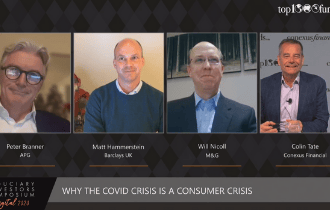This session will look at the development of a vaccine for COVID-19 and what cooperation is needed to fight the virus. More broadly it will examine the way in which bio-medical engineering and the healthcare sector is meeting the needs of changing demographics and creating a better future for the world’s citizens.
Dr Ian Norton, founder and managing director of Respond Global, is a specialist emergency physician and an expert in coordinating emergency health responses to disease outbreaks and disasters.
Norton was head of the WHO’s Emergency Medical Team (EMT) Initiative in Geneva from 2014-20. During this time, he led responses to Ebola, Diphtheria and Measles outbreaks as well as to earthquakes, cyclones, and war zones.
Previous to the WHO, he led the creation of disaster response teams in Australia and was the director of Disaster Preparedness and Response at the National Critical Care & Trauma Response Centre (NCCTRC) in Darwin. Norton established the Australian Medical Assistance Teams (AUSMAT) framework and designed the field hospitals that are today used for international disaster and infectious disease responses.
He established Respond Global in early 2020 with the aim of empowering others to be able to plan, prepare and respond to health emergencies in their own countries. He and his team are currently assisting numerous organisations during the COVID pandemic, providing strategic and practical operational support about how to be COVID-Safe now and into the future.
Kari Stoever is a global development and health policy expert with more than 20 years of experience in health start-ups. Currently she is the chief external relations officer at On Demand Pharmaceuticals, an innovative pharmaceutical manufacturing company transforming how medicines are made so they can be produced on demand whenever and wherever medicines are needed.
Previously, she served as the chief external relations at the Lieber Institute for Brain Development, a nonprofit biotech developing next generation cures for brain disorders. While working at the Nike Foundation she led a $210 million partnership between the President’s Emergency Plan for AIDS Relief (PEPFAR) and the Gates Foundation to reduce new HIV infections in adolescent girls and young women. She was also part of a President Obama’s task force who designed SPARK, a common symbol and platform for connecting diverse programs working to promote entrepreneurship around the world. The programs selected to the President's Spark Initiative represent the best work being done by the U.S. Government to advance entrepreneurship around the world.
While at Aeras, a global nonprofit biotech developing next generation tuberculosis vaccine, she led an initiative with the European Commission and European Investment Bank to design the world’s first blended capital fund to support infectious disease R&D. Prior to Aeras she was the President and Founder of Meliora Global, LLC, firm focused on growth strategies for nonprofits and social ventures, helping clients build multi-sector collaborative partnerships to achieve their local, regional or global goals.
Meliora Global clients included Pegasus Capital Advisors, Ashoka, the United Nations Special Envoy’s office for Malaria, Grameen (Nobel Peace Prize winner, Professor Mohammad Yunus) on the development of social businesses, and the African Program for Onchocerciasis Control.
While at the Sabin Institute, she helped establish and was the managing director of the Global Network for Neglected Tropical Diseases (NTD). She was the Principal Investigator on a $34 million grant by the Bill & Melinda Gates Foundation to establish regional financing mechanisms and to increase international investments for the scale-up of NTD control and elimination strategies globally. Under her leadership, the Global Network secured more than US $100 million in grants and financial commitments and led the development of a U.S. government $1 billion, 5-year strategy for NTDs.
Prior to her work at Sabin, she spent several years managing clinical research studies in cancer and infectious diseases. She spent a year working for the Department of Defense at the United States Army Medical Research Institute for infectious diseases (USAMRIID) managing anthrax and other biodefense studies.
She is the author of a book chapter ‘Governance Models for Eradication Initiatives’ and a co-author on ‘Elements of Good Governance in Disease Eradication Initiatives’ in: Disease Eradication in the 21st Century: Implications for Global Health; Cochi, Stephen L., and Walter R. Dowdle, editors. 2011. Strüngmann Forum Report, vol. 7. Cambridge, MA: MIT Press.
In 2010 she received the distinguished Stevie Award for Women in Business - Best Executive – Service Businesses – up to 2,500 employees. She has served on the board of the Women’s Leadership Initiative at Georgetown University’s McDonough School of Business, and was the Chairperson to Invisible Children, an organization dedicated to raising awareness and mobilizing support to end the Lord Resistance Army’s atrocities in Central Africa.
She holds a B.Sc. from George Washington University, a degree in nursing, and an Executive Masters in Leadership from the McDonough School of Business, Georgetown University.
Colin Tate has been an investment industry media publisher and conference producer since 1996. In his media career, Tate has launched and overseen dozens of print and electronic publications. He is the chief executive and major shareholder of Conexus Financial, which was formed in 2005, and is headquartered in Sydney, Australia. The company stages more than 20 conferences and events each year – in London, New York, San Francisco, Los Angeles, Amsterdam, Beijing, Sydney and Melbourne – and publishes five media brands, including the global website and strategy newsletter for global institutional investors conexust1f.flywheelstaging.com. One of the company’s signature events is the bi-annual Fiduciary Investors Symposium. Conexus Financial’s events aim to place the responsibilities of investors in wider societal, and political contexts, as well as promote the long-term stability of markets and sustainable retirement incomes. Tate served for seven years on the board of Australia’s most high profile homeless charity, The Wayside Chapel; and he has underwritten the welfare of 60,000 people in 28 villages throughout Uganda via The Hunger Project.
Key takeaways
Kari
- The vaccine progress to date has been nothing short of heroic, but the equitable manufacture and distribution of the vaccine is now the hardest part and must be needs based.
- The most important thing in the first instance is to get the vaccine to the most vulnerable.
- The risk of accelerated vaccine production and distribution is a risk worth taking. The existing vaccines are potent.
- We need to work both bottom up and top down but in the USA we have seen a failure at both levels.
- You cannot mandate human behaviour so we need a lot more education on why health rules are in place.
- A lot of the claims made regarding COVID safety are worrying.
- It is dangerous for leaders to suggest that individual rights are more important than public health.
- COVID has forced us to supercharge technological innovation and that positive trajectory is likely to continue.
- COVID will force domestic vaccine manufacturing capabilities to be strengthened.
- Coldchain logistics will be an interesting area for the future. Perhaps going forward vaccines will not need to be stored at negative 80. Storage at negative 80 is unlikely to be achieved at scale in Africa.
- We need a social safety net in place so that people are not choosing between staying at home not working or working whilst placing themselves and others at risk.
- This is not the last pandemic we will see.
Dr Ian
- Our leaders cannot simply lead by command, they must walk with the people.
- Different to Ebola, COVID has led to an infodemic – an outbreak of alternate views, which are truly hard to manage in a health sense.
- The vaccine is all about supply chain, logistics and sheer scale. Proactive testing for example demands an enormous amount of supply.
- Make no mistake, vaccination will be a slow process – A sign of success for Africa would be 20% of the continent to be vaccinated by the end of 2021. We have never seen a pandemic end in less than 2-3 years. There will be several waves to come.
- We need an agency like the WHO but unless we invest in it sufficiently and give it flexibility to use funds as it deems fit then we will not have the agency we need. If we didn’t have a WHO we would have to invent one. In the next 3 years, more criticism of the WHO will follow. The future of global health management could involve blocks of countries coming together to drive impact at scale.
- We have all learned that a healthy workforce is a productive workforce.
- We are likely to see a rebound of funding back into neglected health issues such as cancer and trauma care.
- Ethically minded businesses will grow massively going forward.
- There are clear implications for the management of investment portfolios. The world may only return to a resemblance of ‘normal’ earliest 2023 mostly due to the challenges presented by Africa and Central / South East Asia. Central and South America may only recover by around 2022.






